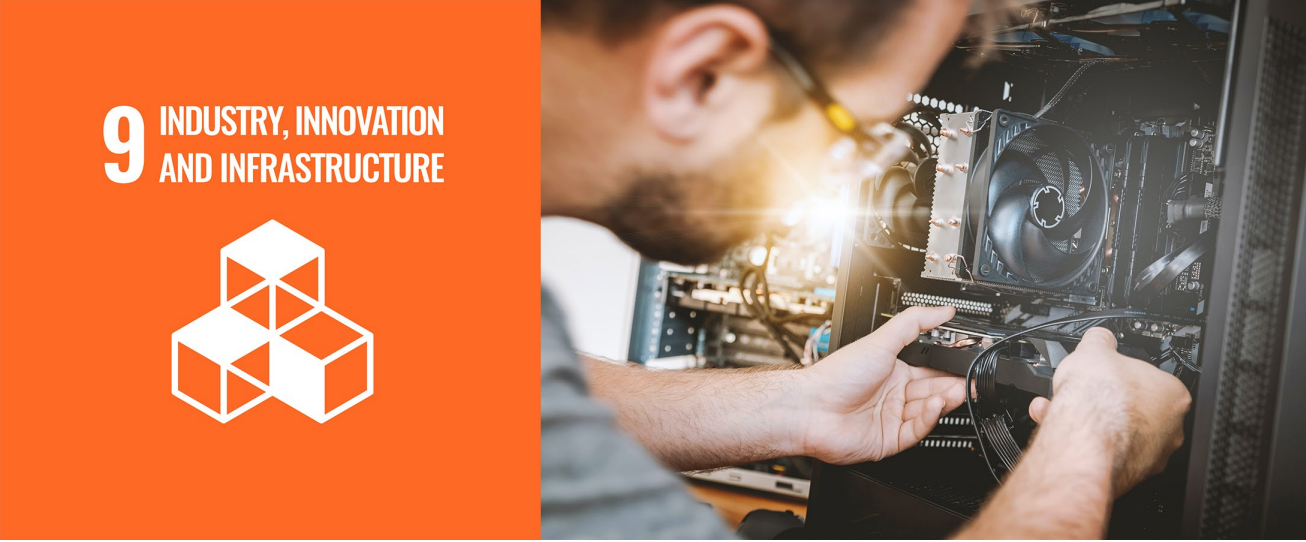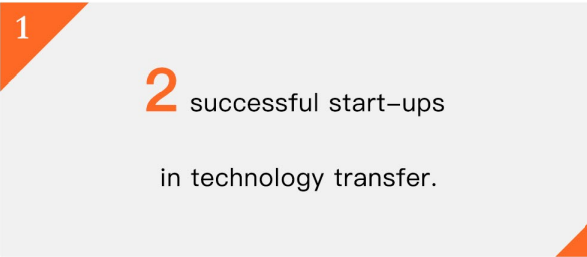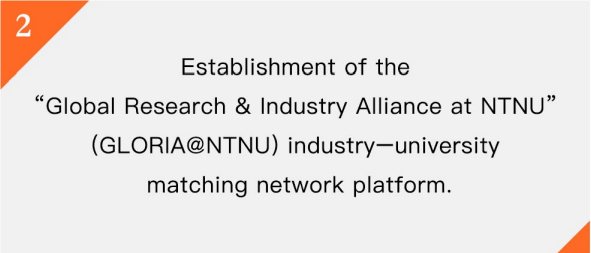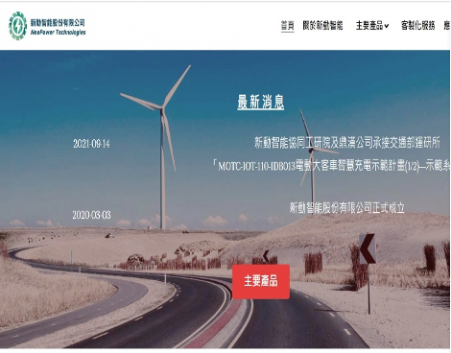


9.1 Spirit of the SDG and the University’s Philosophy
Given that infrastructure and industrialization can drive a country’s economic growth and thereby improve the well-being of the population, the SDGs call on all countries worldwide to work together and attach importance to investing in infrastructure such as transportation, agriculture, energy, electrification, and communication technologies, all of which are industrial developments driven by technological innovation.
NTNU uses innovative research results as the basis to match business partners with the University’s research and development team, bridging industry and academia on the principle of complementarity and mutual benefit to provide matching services, thereby accelerating the value-added transformation of industry. This approach at the same time feeds back to the momentum of research and development, in the hope of achieving the goals of cross-domain research, multinational cooperation, cross-enterprise linking, and intercollegiate alliances.
9.2 Achievements
Research information and promotion
The “Global Research & Industry Alliance at NTNU” (GLORIA@NTNU) was established with the goal of solving the four main needs of enterprises, and was based on the achievements of academic research and innovation to attract enterprises to join GLORIA@NTNU and facilitate new creative energy in industry. The University also constructed the “NTNU STEAM[1] Education Online Exhibition” industry–university-matching network platform to improve industrial technical capabilities.
Industry–University Cooperation Research
During 2020 there were 113 industry–academia collaborations involving nongovernmental units in the University, with a total research funding of about NT$ 132 million provided to just under 800 researchers, corresponding to average research funding for each research plan of NT$ 165,000. The research funding was about NT$ 39 million in science, technology, engineering, and mathematics, NT$ 4.5 million in the medical field, and NT$ 89 million in arts and social science.
Technology transfer and successful entrepreneurship
Two successful entrepreneurial cases supporting teachers’ technology transfer were as follows:
- Professor Hung Yi-Hsuan Hung of the Energy Program and Professor Chen Syuan-Yi of the Department of Electrical Engineering established NeoPower Technologies Co., Ltd. to provide the best energy management and power system design solutions for the green energy industry.
- Professor Lai I-Wei of the Department of Electrical Engineering established a math education-focused startup to let everyone “see mathematics” in their lives, with the goal of achieving numeracy literacy.
Promoting innovative and entrepreneurial projects for teachers and to nurture students
The University has implemented the Ministry of Education’s EC-SOS Program to train teachers about entrepreneurship and guidance measures. The University promotes innovation and entrepreneurship programs to cultivate students, and provides the “U-start Plan for Innovation and Entrepreneurship”, EC-SOS Program, and “Innovation and Entrepreneurship Competition Activities.” These programs provide guidance and cultivation to help entrepreneurial teams to set up companies.
[1] STEAM stands for Science, Technology, Engineering, Art, Mathematics
9.3 Featured Highlights
9.3.1 “NTNU STEAM Education Online Exhibition” industry–academia-matching network platform
In terms of innovative industries, the University has already established the “NTNU STEAM Education Online Exhibition” industry–academia-matching network platform to enhance industrial technical capabilities.
Related Media Coverage

9.3.2 Initiating a fresh turning point in education with the innovation and entrepreneurship of academic research
Two successful entrepreneurial projects for teacher technology transfer at NTNU have been the establishment of NeoPower Technologies Co., Ltd. to provide the best energy management and power system design solutions for the green energy industry, and a math education-focused startup to let everyone “see mathematics” in life, with the goal of achieving numeracy literacy.
Related Media Coverage


